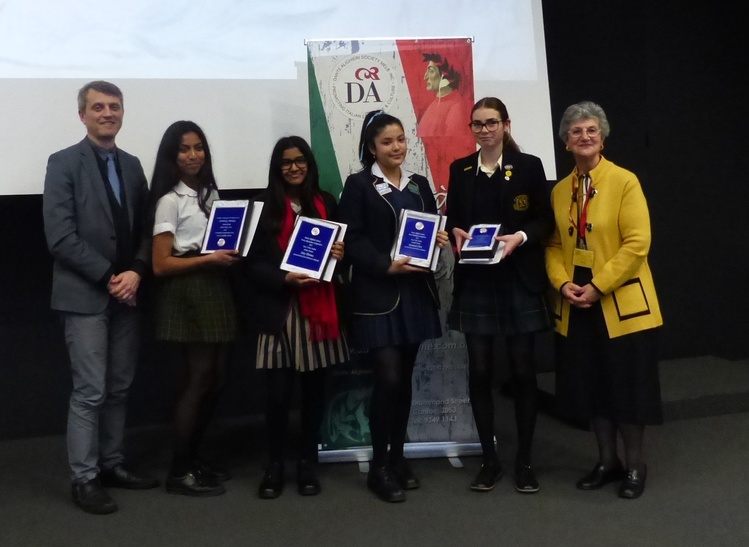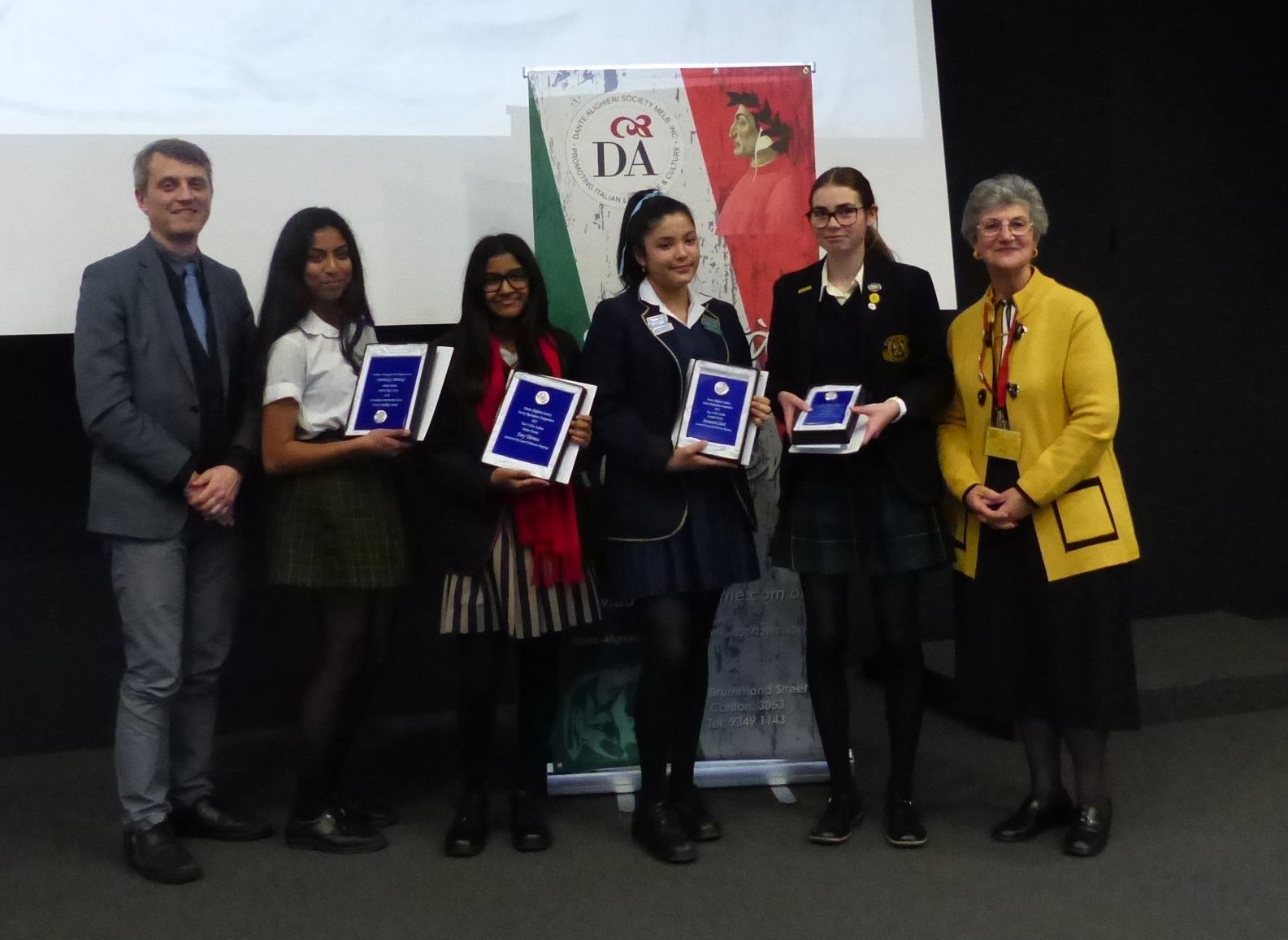There are three categories in the competition: poetry recitation, original poetry and discorso (in which senior students are required to write an original essay on a topic of their choosing).
As always, the event showcased and celebrated the passion for Italian language and culture in Victoria which – according to coordinator, Ester Marcuccio – is unrivalled.
It’s evident in students’ willingness, enthusiasm and courage to participate in the competition, writing and speaking in a second language (aside from those entered in the mother language section).
Participants come from far and wide to compete, and many students have to travel several hours from rural areas such as Swan Hill, Traralgon and Shepparton.
The competition is one of the many different activities which keep students from across the state busy throughout the year.
The awards ceremony took place at the University of Melbourne, which hosts the event annually.
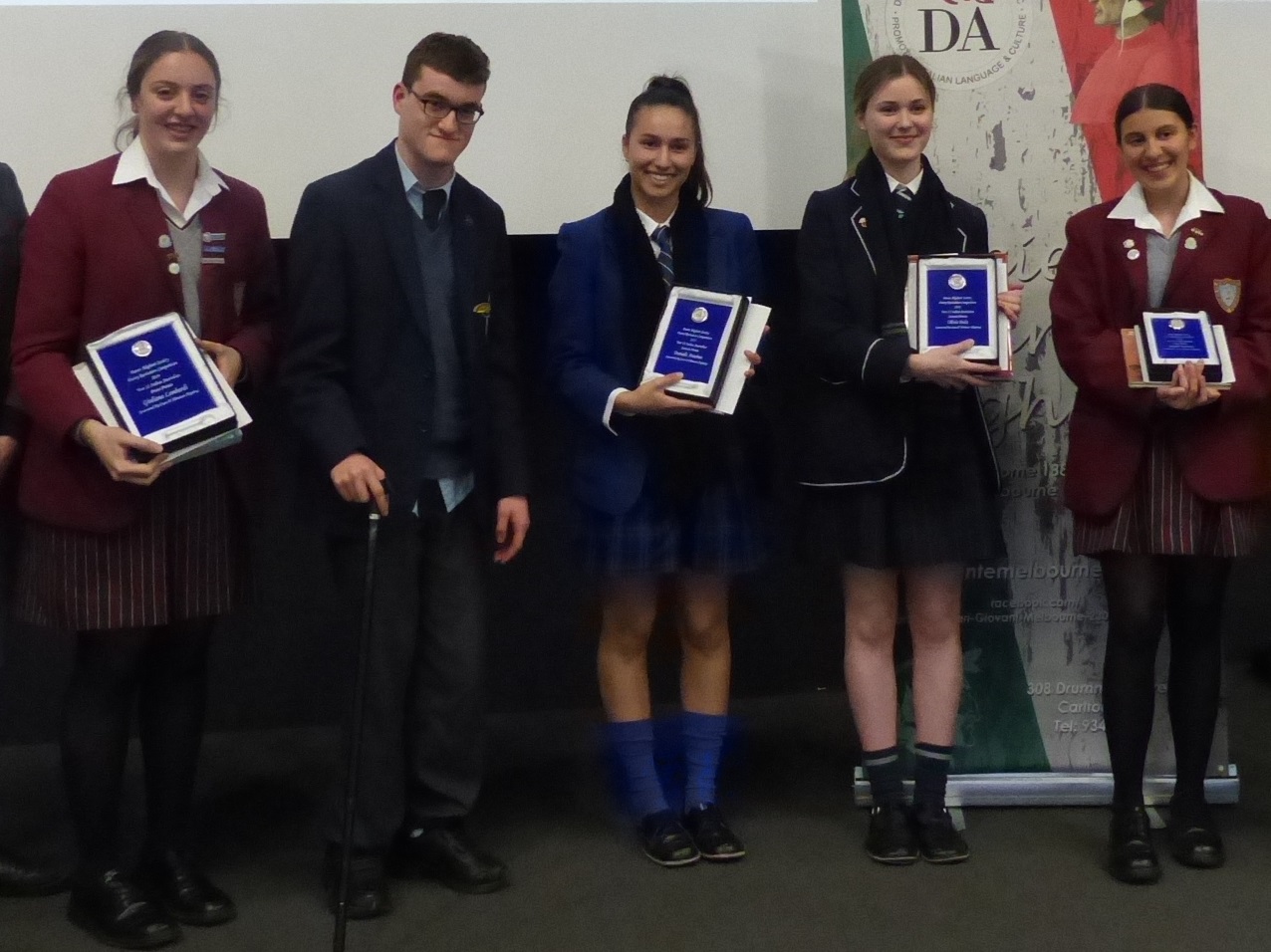
Winners in the Year 12 Italo-Australian poetry recitation category (left to right): Giuliana Lombardi, Rohan Symonds, Danielle Anselmo, Olivia Bula and Isabella Trichera
Three Italian professors from the university were present: John Hajek, Elisabetta Ferrari and Andrea Rizzi.
Other guests included the director of CO.AS.IT., Marco Fedi, and former Italian professor at Australian Catholic University, John Lando, who was the competition judge and the author of one of the poems recited.
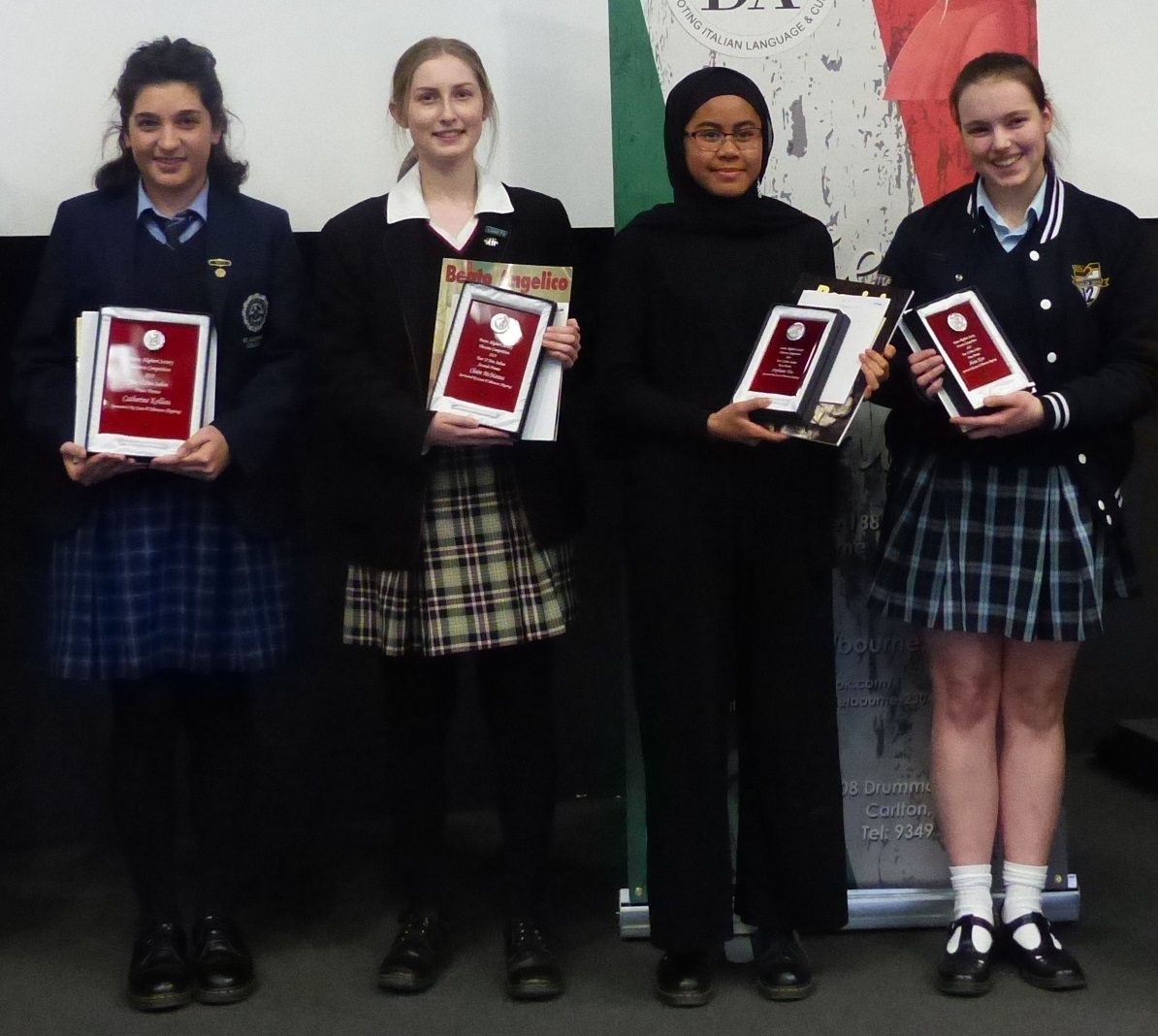
Winners in the Year 12 non-Italian discorso category (left to right): Catherine Kolliou, Claire McManus, Stephanie Vita and Alana Kirn
Absentees included: president of the society, Dominic Barbaro; Fernando Cardinale of event sponsor, Casa d’Abruzzo; and poet Giovanna LiVolti Guzzardi.
Vice president of the society, Mary Marcuccio, did the honours alongside her daughter Ester.
They thanked Celeste Centioli for having been in the front line during the poetry recitation competition, in which 2891 students took part.
The event organisers were emotional during their speech, which visibly moved the crowd gathered at the Copland Theatre on Pelham Street, made up of students and their supportive loved ones.
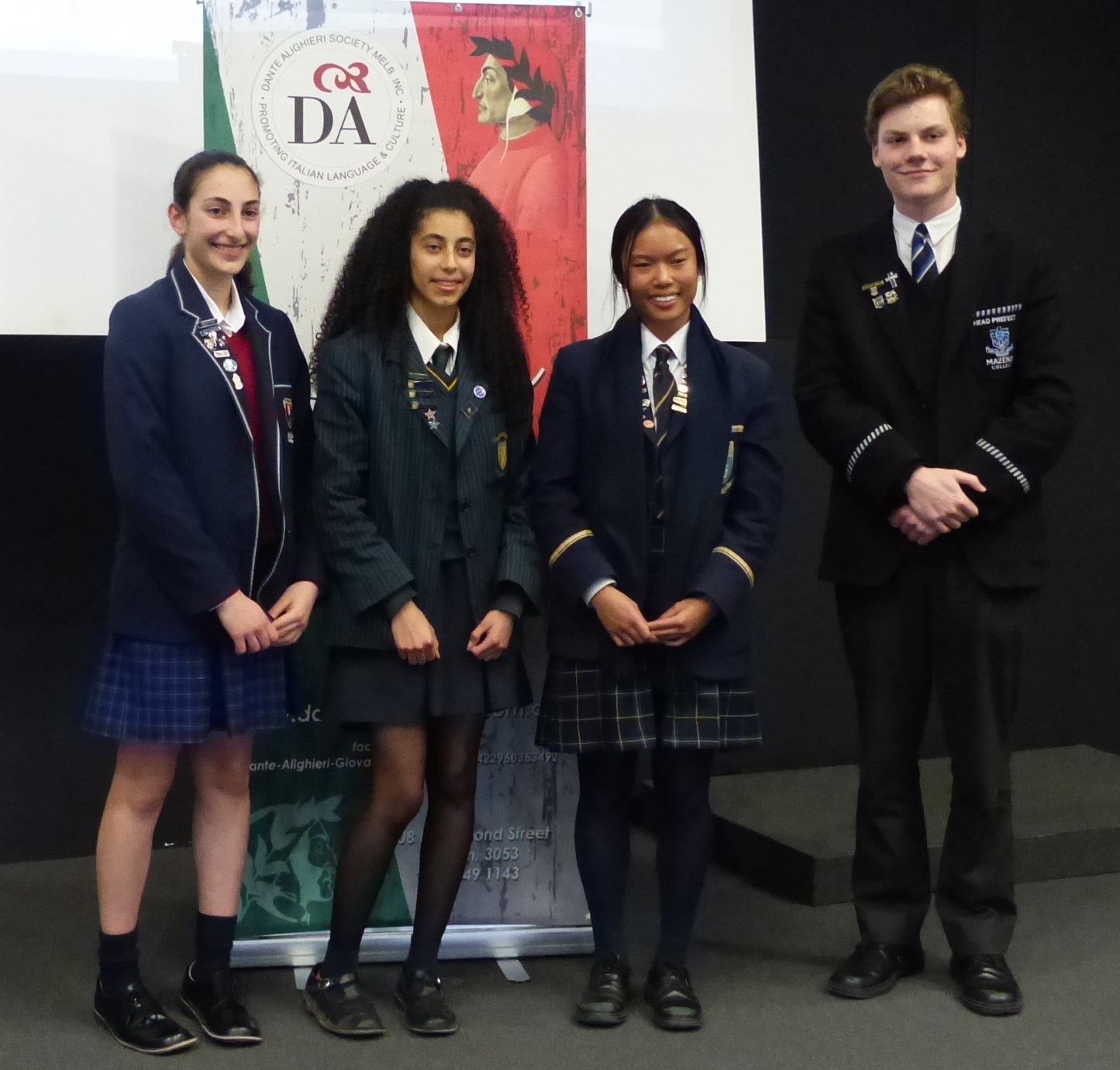
Winning students for their recitation of Canto XI from Dante Aligheri’s Purgatorio (left to right): Victoria Sarafian, Maria Hinen, Jelinna Santiago and Sam Warner
The first students to be awarded were the “authors” of original poems who stood out from the 118 participants of that category.
The themes explored in each poem couldn’t have been more different: from Leonardo da Vinci to winter, from the Italian language to loneliness, from time to the weather.
The youngest poet, Year 7 student Nikhill Vallury from Thornbury High School, wrote evocative verses about the feeling of oppression caused by living in urban spaces, which are increasingly restrictive and suffocating and block out the trees, sunrise and stars.
Incredible creativity was also demonstrated in the discorso category, in which 55 students from diverse backgrounds submitted essays.
According to Catherine Kolliou, a student of Greek background, it’s important for young people to learn another language, whether it’s that of their heritage or another.
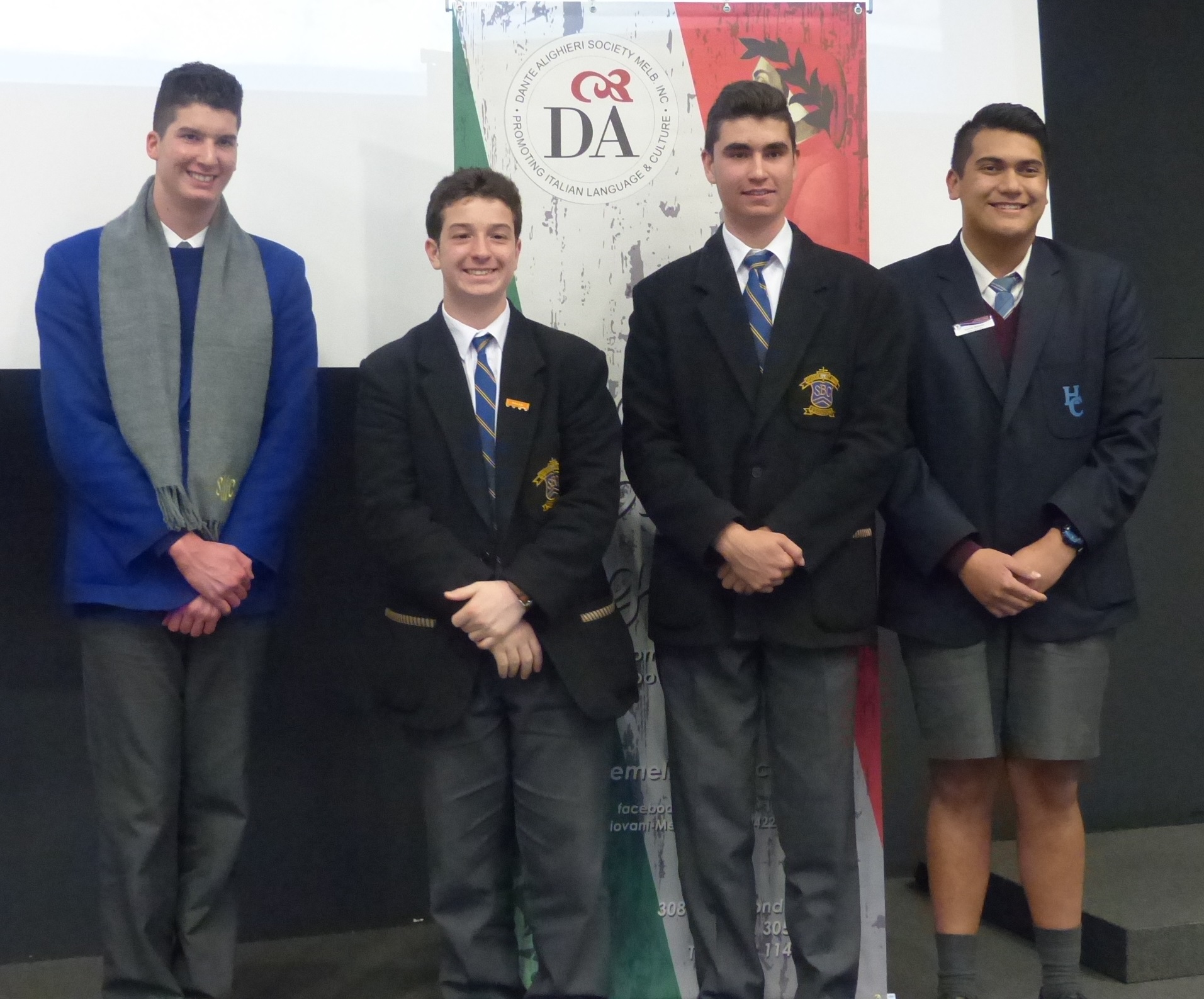
Winning students for their recitation of Canto XI from Dante Aligheri’s Purgatorio (left to right): Julian Tsobanopoulos, Joshua Conversano, Antonio Pizza and Konnah Brennan
Throughout the evening, many familiar faces who’ve won awards in previous editions graced the stage, such as Rohan Symonds of Lavalla Catholic College in Traralgon.
Others swept up multiple awards: Claire McManus of Our Lady of Sion College was awarded for her poetry recitation, discorso and original poetry; Beatrice Madamba of St Aloysius College was awarded for her poetry recitation and discorso; and Lara Partridge of Genazzano FCJ College was awarded for her discorso and original poetry.
As is tradition, the ceremony concluded with a recitation of Canto XI from Dante Alighieri’s Purgatorio - this year’s chosen text - by the competition winners.
Dante’s Divine Comedy never ceases to amaze with the modernity of its themes and messages: in the case of Canto XI, the genius poet invites us to keep pride at bay and be aware of the vanity that leads man to seek fame, fleeting as the wind.
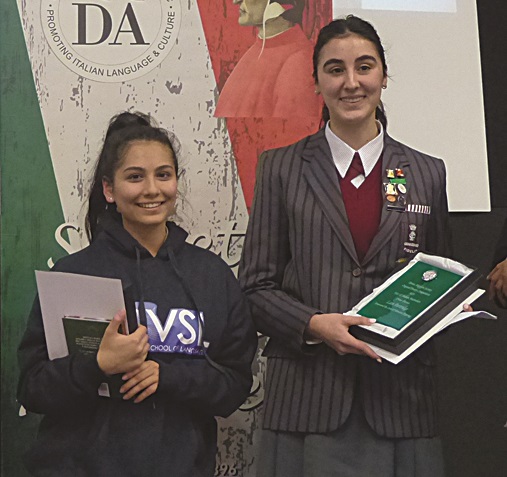
Isabel La Fortezza (left) and Lara Partridge, who came first and second in the Year 11 Italo-Australian original poetry category
He says we should treasure the talents that have been given to us by nature and not sin by vainglory.
This message is still as relevant today at it was in the 1300s, when Dante wrote his masterpiece.
Tune in to Rete Italia during the Week of the Italian Language in the World, running from October 21 to 26, to hear from some of the award-winning students.

